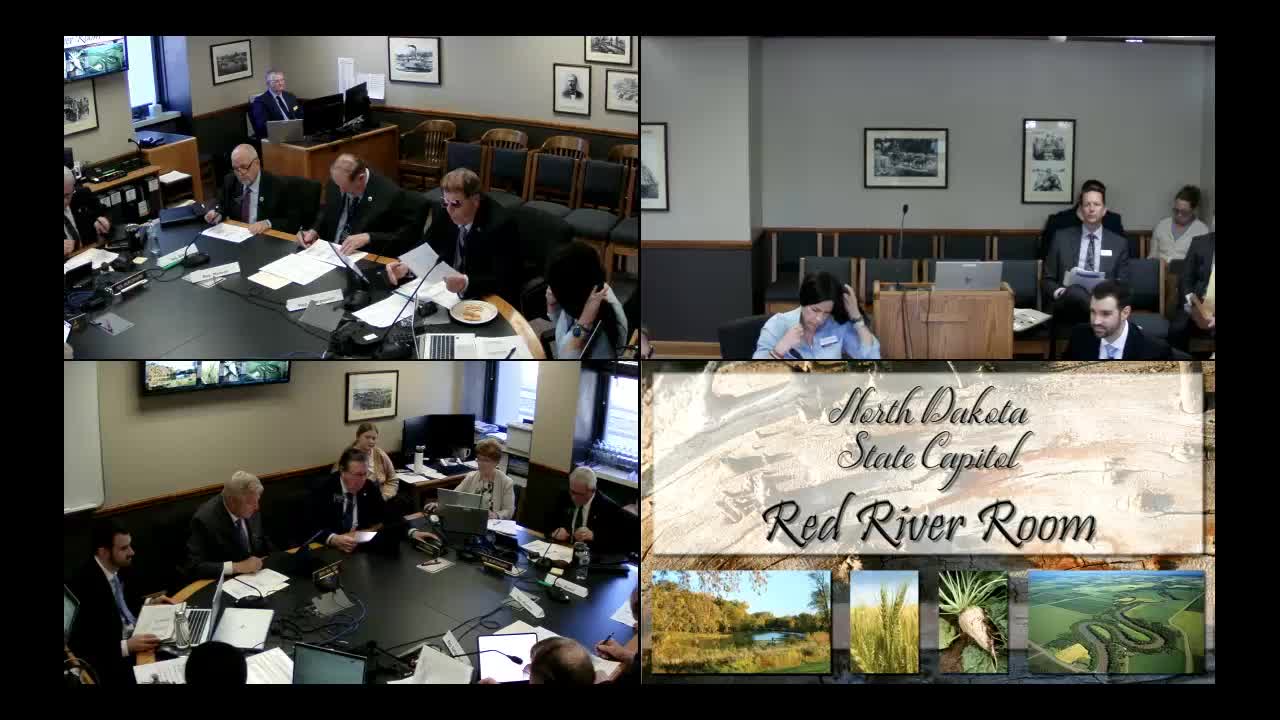Conference committee backs House amendment directing trust lands, Commerce to identify revenue opportunities
Get AI-powered insights, summaries, and transcripts
Subscribe
Summary
A conference committee on Senate Bill 2013 voted to accept a House amendment that directs the Commissioner of State Trust Lands and the Commerce Department to collaborate on identifying revenue diversification and development opportunities for state trust lands; the panel also approved related staffing and line-item funding.
At a conference committee meeting on Senate Bill 2013, members voted to accept a House amendment that directs the Commissioner of State Trust Lands and the Commerce Department to collaborate to identify revenue diversification and development opportunities for state trust lands and to report findings to the appropriations committee.
The change, placed in Section 4 of the bill, does not itself authorize projects on trust lands but requires the two agencies to identify potential development or revenue options and report back. Joseph Herringer, Commissioner of State Trust Lands, told the committee that nearly all current trust-land revenue comes from mineral rights — "about 97%" — and that projections show oil and gas revenue could begin to decline "somewhere in the early 2030s," which prompted the push to explore other income streams.
Committee members discussed whether to add a dedicated state hire (FTE) to pursue diversification or instead to rely on the state Commerce Department’s marketing and business-development resources. Senator Wanzek raised the question of what "revenue diversification, development opportunities" meant in practice, prompting examples from Herringer such as wind and solar projects, soil carbon sequestration markets, gravel sites, and potential interest from industrial or data-center projects. Herringer said the trust-lands office currently manages thousands of surface and mineral leases and that staff capacity is largely consumed by existing workload.
The committee also reviewed related line items in the bill: an unclaimed-property FTE position with salary and benefits estimated at $242,900 and a salary funding "equity and retention" line of $550,000; those items were discussed as part of the packet differences between the House and Senate versions. Members were told that the trust-lands office reports annual valuations of both surface land and minerals; recent board materials showed surface land values just under $700 million (expected to rise toward about $750 million) and mineral-rights value around $2.5 billion. Herringer said combined land, mineral and investable assets are roughly $11 billion, with about $8 billion in investable assets.
Committee discussion made clear that any large project on trust lands would still require review and approval by the seven-member Land Board. Herringer said the agency would try to protect existing tenants and work around lease renewals or breaks if a project required changing the use of currently leased land.
Representative Bosch moved that the Senate accept the House amendment; the motion was seconded and carried on a roll-call vote during the meeting. Recorded votes shown in the meeting record included Yes votes from Representative Monson, Representative Bach, Representative Kempenich, Senator Wanzek and Chairman Burkhart, and a No vote from Senator Herbaly. The committee recorded the motion as passed; the panel directed that the collaboration and any findings be reported to the appropriations committee.
The amendment’s language directs identification and reporting only; it does not itself approve any development, alter existing leases, or authorize spending for new projects. If the agencies identify opportunities the Land Board wishes to pursue, those proposals would follow standard Land Board review and any required local or statutory processes.
Copies of the trust-lands board packet and the agency’s valuation reports were discussed as available on the agency website during the hearing; committee members said they would monitor progress and could return to request a dedicated FTE later if the Commerce collaboration fails to produce expected results.
